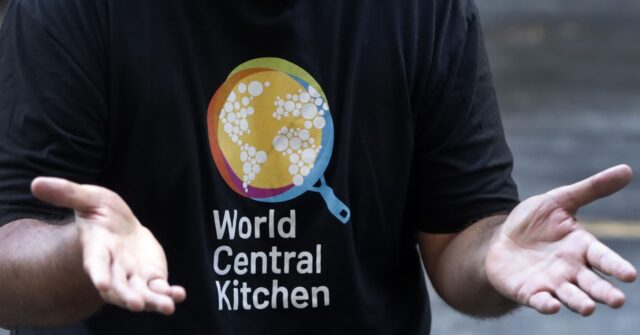World Central Kitchen (WCK), a charitable organization based in the United States and known for its efforts in food distribution, particularly in crisis situations, has recently faced controversy due to allegations of its employees being linked to terrorist organizations in Gaza. This situation escalated after a specific incident involving one of its staff members, Ahed Azmi Qdeih, who was reportedly involved in the deadly Hamas-led attack on Israel on October 7, 2023. This attack resulted in significant casualties, with approximately 1,200 individuals killed and over 250 taken hostage. Following this incident, WCK confirmed the termination of dozens of employees, responding to Israeli demands for an investigation concerning potential ties of their staff to terrorist activities.
The backdrop of these developments includes not only the specific case of Qdeih but also a broader Israeli inquiry into the affiliations of WCK staff members. An Israeli security official highlighted that a review pointed to 62 employees having connections to militant groups. This alarming finding underscores concerns regarding the infiltration of humanitarian organizations by individuals with potential ties to extremist factions. Amidst this turbulent situation, WCK has publicly stated that it had no prior knowledge of any of its employees being involved in the October attack or affiliated with terrorism.
The organization’s involvement in Gaza has not been without challenges in the past. Earlier in April, an Israeli airstrike intended to target a suspected terrorist convoy inadvertently took the lives of several WCK employees, leading to further scrutiny of the organization’s operations and the safety measures in place for its staff. An investigation into that incident suggested Hamas may have intentionally provoked Israeli forces, thereby complicating the narrative around humanitarian efforts in conflict zones. Such accusations not only impact WCK’s operations but also contribute to a strained relationship between Israel and various international aid agencies.
In the ongoing discourse surrounding WCK, Israel has leveled similar accusations at other humanitarian organizations, such as the United Nations Relief and Works Agency (UNRWA). These claims highlight concerns among Israeli officials regarding the hiring practices of these organizations, suggesting that some employ individuals with known affiliations to Hamas and other militant groups. Such allegations can undermine the credibility of these organizations and complicate their efforts to deliver aid in conflict-stricken areas.
Public figures and commentators have weighed in on the situation, with some emphasizing the challenges humanitarian organizations face in maintaining operational integrity in complex environments. The counter-narratives emerging from these crises illustrate a growing tension between the need for humanitarian assistance and the realities of security concerns in regions afflicted by violence. Individuals and organizations involved in these efforts must navigate a precarious landscape, which can often result in tragic outcomes, like those experienced by WCK.
As discussions continue around the implications of these recent events, the future of humanitarian aid in Gaza, and the legitimacy of organizations like WCK, remains uncertain. This situation serves as a sobering reminder of the complexities that arise when humanitarian missions intersect with geopolitical conflicts. With ongoing scrutiny and investigation, it will be critical for World Central Kitchen and similar entities to address the underlying issues raised by these developments to regain trust and effectively carry out their missions in regions that demand urgent humanitarian assistance.

